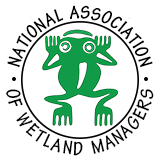Protecting and Restoring Wetlands: A Guide for Land Trusts
By Jon A. Kusler, Association of State Wetland Managers, Inc. (Updated on 1/15/2009)
Protecting and Restoring Wetlands: A Guide for Land Trusts
By Jon A. Kusler, Association of State Wetland Managers, Inc. (Updated on 1/15/2009)
Protecting and Restoring Wetlands: Strengthening the Role of Local Governments
By Jon A. Kusler, Association of State Wetland Managers, Inc. (6/15/2007)
Protecting and Restoring Wetlands: Strengthening the Role of Local Governments
By Jon A. Kusler, Association of State Wetland Managers, Inc. (6/15/2007)
Common Questions: Land Trusts and the Protection/Restoration of Wetlands
By Jon Kusler, Association of State Wetland Managers, Inc. (6/26/2006)
Common Questions: Land Trusts and the Protection/Restoration of Wetlands
By Jon Kusler, Association of State Wetland Managers, Inc. (6/26/2006)
Common Questions: Constructing Wetland Boardwalks and Trails
By Jon Kusler, Association of State Wetland Managers, Inc. (6/26/2006)
Common Questions: Constructing Wetland Boardwalks and Trails
By Jon Kusler, Association of State Wetland Managers, Inc. (6/26/2006)





 The Association conducts research and publishes reports, guidebooks, news articles, brochures, white papers, and summaries of findings of symposia and workshops. These are available electronically to all interested individuals and organizations.
The Association conducts research and publishes reports, guidebooks, news articles, brochures, white papers, and summaries of findings of symposia and workshops. These are available electronically to all interested individuals and organizations.